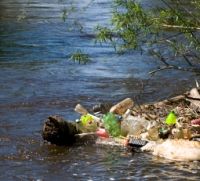

The Environmental Protection Agency (EPA) published their Industrial and Waste License Enforcement Report 2018 on 18 July 2019, and has found that overall there is good levels of compliance at licensed industrial and waste sites - though they continue to focus at a small number of problematic sites.
This report provides details of compliance levels and enforcement activities across over 800 licensed facilities through 2018. Its results showed that 15 sites had been identified as National Priority Sites for enforcement by the EPA in 2018, and those that were found were mostly food and drink (6), or waste sites (5) - some have since shown improvements, but there still remains a priority for 5 sites that have not seen any change. These companies risk further enforcement action for various key issues.
There has been a 22% reduction in the number of complaints received by the EPA compared to 2017, and the majority of sites (85%) have no complaints made against them at all. There was a fair variety in the complaints that there was, seeing:
Of the 1,490 site inspections that were carried out, 95% of those were unannounced - a quarter of those were in response to complaints, allowing for the most efficient and realistic view of the companies. As a result of these surprise inspections, there were 15 prosecutions in 2018 - this resulted in fines of over €241,000 being imposed.
Darragh Page, the EPA Programme Manager, for the Office of Environmental Enforcement has said, "The EPA targets its enforcement efforts at the most non-compliant facilities. The publication of the National Priority Sites system last year has continued to drive environmental compliance and much-needed investment in environmental infrastructure.”
Licensed sites are here identified by the EPA as ones to be enforced as a National Priority Site using a system they have developed. Allocation of points to each site based on compliance data (such as complaints, incidents, and non-compliances over the last 6 months) determines its status - those which exceed a certain threshold are given the status of a 'National Priority Site', and as such are targeted for further enforcing action. These lists are updated on a quarterly basis.
Are you wondering why we're discussing legislation in the Republic of Ireland? Watch this space...